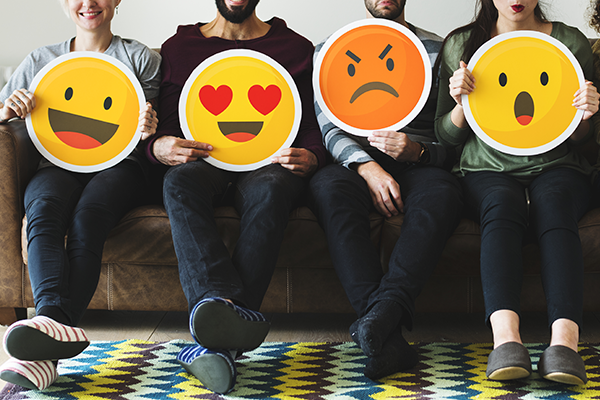
Do emojis make you 🙂 or do they make you 🙁 ? Use emojis in text and email with caution, because a misinterpretation could land you in hot water. If you unintentionally send a kissy face to a subordinate, is that sexual harassment? If you send a gun emoji, is that a death threat?
US courts have been experiencing a rise in the use of emojis as evidence. Courts used emojis as evidence 33 times in 2017. In the first half of 2019, that number has risen to almost 50. As everyone from your toddler to your grandma becomes fluent in text speak, emojis are becoming an inescapable element of our techie vernacular.
Currently there are no hard and fast rules of evidence for handling emojis in court cases. Some judges toss them out all together; some judges describe the emoji (smiling pile of poo anyone)? These emojis (along with written text messages) can be misinterpreted, explained away with “I was just joking” (or j/k), or laughed off—because an “LOL” makes everything better, right? Depending on your cultural background, a seemingly harmless thumbs up could be offensive or vulgar. Depending on your operating platform, an emoji appears different and not the innocent smiley you thought you were sending—most differences can be noted between Apple and Android devices.
New emojis are released on a regular basis. Courts will soon need to interpret existing laws to meet this growing need. Can you imagine our founding fathers’ reactions to an eggplant and a peach now being considered provocative? At least via text they are… Although your teenager can most likely interpret a confusing emoji filled text message, contact a reputable attorney for assistance should an emoji make you ?.
Call us today for a consultation!





